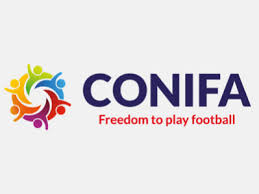By Andrew Warshaw
May 31 – None of the players are household names and there are no millionaire superstars or over-inflated egos. But there is no doubting the passion and patriotism of everyone involved.
The World Cup proper, with all its hullabaloo, may be getting under way in less than a month’s time but for 16 marginalised areas unrecognised by FIFA, what happens over the next 10 days in London is equally important – if not more so – than what unfolds in Russia.
For the likes of Northern Cyprus, Tibet, Matabeleland and 13 other independence-seeking regions, self-declared republics, indigenous communities and breakaway diasporas, the only thing that matters is trying to become Conifa World Football Cup champions on June 9.
They may not punch their weight on the world football stage but collectively, those taking part in what is the third edition of the biennial tournament represent 334 million people across five continents.
“We are thrilled to be taking CONIFA to England – the spiritual home of football,” says CONIFA President Per-Anders Blind, himself the son of a reindeer herder from the Sápmi cultural region in northern Scandinavia. “The World Football Cup just gets bigger and bigger. After hosting our inaugural tournament, we reached new heights in Abkhazia last year with an event that received media coverage on every inhabited continent.”
Tournament director Paul Watson, who has written a book about his time coaching in the Micrononesian outpost of Pohnpei back in 2009, shrugs off criticism in some quarters that Conifa – full name Confederation of Independent Football Associations – is politically influenced. There are, he points out, strict eligibility criteria with 10 conditions having to be met. But the over-riding ethos is to enable cultures with a strong but in some cases forgotten heritage to come together with a common cause.
“I suddenly realised there were so many areas where football could be a really powerful tool,” Watson told Insideworldfootball. “I’m the first to admit that we have been accused of legitimising breakaway states but I would say the opposite. We are in fact totally apolitical. We would never allow anyone in if they were using us as a front for political aims. I can’t deny that sometimes I have sleepless nights over things like teams being based in exile but we don’t set out to do anything except recognise people’s rights to represent their identitities, play football and build bridges through sport.”
Sponsored by the Paddy Power betting group, all matches are taking place at non-league grounds across the capital manned entirely by a tightknit group of unpaid administrators and volunteers. Abkazia, who opened the defence of their title against Tibet at Enfield Town’s ground in north London, may be relatively unheard of but the fact that 10,000 people took to the streets in the breakaway region of Georgia when the team lifted the trophy two years ago speaks volumes about the power of football.
For Northern Cyprus, who have been battling for years for official recognition on the Greek-controlled island, the Conifa World Football Cup represents vital exposure.
Negotiations for a unified Cypriot team have stalled in recent months and delegation chief Orcun Kamali, whose team’s first game of the tournament followed immediately after Tibet-Abkhazia, told Insideworldfootball: “This gives a chance to our young people to see what it feels like to play competitive matches. My son always asks me why we can’t play teams abroad. We have a structured league programme at home but it seems there is no longer any international appetite to get everyone round the table again.”
One face sure to be recognised by fans is that of Mark Clattenburg, the former Premier League referee. Britain may not be sending any officials to the World Cup for the first time in 80 years but it is a major coup for Conifa that Clattenburg has been lined up to handle next week’s Conifa grand final.
If his appearance adds a touch of celebrity to the proceedings, the tournament also breaks new ground with the introduction of a green card – halfway between a red and yellow – bringing an interesting new dimension to the officiating.
“At CONIFA, sportsmanship and fair play are absolute core values and we spent years discussing how we could eradicate the typical bad behaviours on a football pitch seen in nearly every match today – simulating, arguing, shouting names – more effectively than others,” explains CONIFA General Secretary Sascha Düerkop.
Anyone showing dissent will be branded a green card and forced to leave the pitch. Instead of being a man short, however, teams can immediately throw on a substitute to bring them back up to full numerical strength. “We are very pleased to give it a go and see how it helps making the match more fluid and gentleman-like again,” said Duerkop.
Contact the writer of this story at moc.l1745646876labto1745646876ofdlr1745646876owedi1745646876sni@w1745646876ahsra1745646876w.wer1745646876dna1745646876

